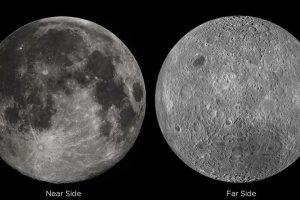
Compiled by: Dr Munazza Alam
Science Section Deputy Editor
February 11th marks the celebration of International Day of Women & Girls in Science, declared by the United Nations General Assembly in 2015 to achieve equal access to and participation in science for women and girls. In honor of this event, we asked Ahmadi Muslim women working in STEM academia and industry: ‘What does it mean to you to be an Ahmadi Muslim woman scientist?’ Below are their inspiring responses.
‘As Muslims, we are constantly taught to seek the truth, to seek knowledge wherever it may lead us, and for women in particular, I am grateful to Islam, for establishing my rights (since the 7th century) to be a scientist. What I find beautiful about being an Ahmadi woman scientist is knowing that there is harmony between science and spirituality and the importance of mobilizing science for the benefit of all earthlings (especially those downtrodden or marginalized). In pursuing science, I realize the important Islamic principle of maintaining balance and moderation (the middle path) to ensure harmony between my personal life as a mom of three and my career as a professor.In my work studying food systems (from farm, to table, and even in outer space), principles such as justice, accountability, interconnectivity, and tauhid (unity) informs how I identify solutions. In honour of Islam’s deep emphasis on justice, we should harness the International Day of Women & Girls in Science to push for more equality and to secure opportunities for all women around the world to become scientists if they wish to pursue this path.’
– Tammara Soma PhD MCIP RPP, assistant professor, School of Resource and Environmental Management, Simon Fraser University Canada
‘Being only a “Woman Scientist” wouldn’t make much of a difference, neither to me nor to the world. However, when I identify myself as an “Ahmadi Muslim Woman Scientist”, I feel a great sense of blessing, responsibility, and honor. This identity makes me feel surrounded with Allah’s help in every situation and struggle. I always find guidance through the prayers and directions of my beloved Caliph. My Caliph is the one whose words have set a huge responsibility for me to carry out my tasks in the finest manner possibleas he expects from Ahmadi women no less than what was accomplished by Nobel Laureate Professor Abdus Salam. Being an Ahmadi is always an honor for me; it enables me to show the world that I’m not merely a woman scientist, but a woman of modesty and intellect with a distinct personality motivated by Islamic teachings.’
– Sabiha Salma, Computer Science Ph.D. student, George Mason University
‘I am proud to be an Ahmadi Muslim woman and wear my faith on my sleeve (head). I enjoy my work and I enjoy the challenges that come along with it. It is absolutely awe-inspiring to see the connections between the scientific advancements of the modern age and how they link to prophecies in the Holy Qur’an more than 1400 years ago. Working in the petrochemicals industry has also strengthened my faith. I remember learning about benzene and the structure of this compound in college and was amazed to read the excerpt from Revelation, Rationality, Knowledge and Truth where the Fourth Caliph, Hazrat Mirza Tahir Ahmad (rh) made reference to Kekule’s dream which helped his work on the structure of benzene. I feel blessed to have a faith that supports the acquisition of knowledge for every man and woman, but more importantly, does not force me to choose between religion and science.’
– Bareah Alam, B.S. Chemistry, M.S. Chemical Engineering, R&D Chemist

‘As a STEM teacher, I have the privilege and honor of inspiring a love of science to young minds. Through experimentation, discovery, and knowledge of the workings of nature, my goal as an Ahmadi Muslim science teacher is to empower young learners with critical scientific skills necessary for success as global citizens. In today’s modern society, there are also several moral and ethical questions relating to science, and as an Ahmadi Muslim I feel the need to especially keep such questions in perspective as I frame my lessons so that students can not only learn scientific literacy, but also the implications and responsibilities that scientists and the general public have in shaping a pure society. In my day to day lesson planning for biology or chemistry classes, being an Ahmadi Muslim STEM teacher gives me the opportunity to reflect on the wonders of the natural world and how they grant us a deeper appreciation for the attributes of Allah the Almighty.’
– Khulood Sharif, M.A. in Teaching, Science Teacher at Waltham High School
‘I serve as President of the USA’s Ahmadi Women Scientists Association and on a professional level as Senior Principal Scientist in the Inflammation & Immunology Research Unit at Pfizer, Massachusetts USA. As an Ahmadi woman, my profession as a scientist has empowered me to work collaboratively with some of the premier scientists. It was the scientists working in Pfizer that led to the development of a Covid-19 vaccine at record speed to save millions of lives during this global pandemic. What makes me distinct from others is keeping the guidance of the Holy Qur’an and inspiration by the Fifth Caliph, His Holiness, Hazrat Mirza Masroor Ahmad (aba) at the forefront of scientific research.The impact of an Ahmadi Muslim scientist can be far greater as we have the prayers of our beloved Caliph (aba) in overcoming challenges and advancing in scientific innovation. As an Ahmadi Muslim scientist, I am blessed to uphold the core Islamic values and emulate creativity across teams at Pfizer, in discovering medicines for the benefit of humanity. I am honored to strive to fulfill the great mission given to us by His Holiness, the Caliph (aba),“you must all consider it your mission to pursue excellence in your chosen field.”’
– Dr. Nusrat Sharif, Ph.D. in Molecular Immunology, Senior Principal Scientist at Pfizer
‘“Remember that the key for any nation to thrive and progress lies in the hands of the mothers of that nation.” This beautiful statement was made by our beloved Caliph (aba) at the occasion of a National Waqifat-e-Nau Ijtema (February 24, 2018). As a scientist, a teacher, and a mother, I am inspired by this quote to strive to do my best to discover new knowledge, share existing knowledge, and inspire others to do the same.’
– Dr. Noveera Tahir, Ph.D. in Cell Biology, Associate Professor at St. John Fisher College
‘The Qur’an is full of many scientific facts that, at the time of its revelation, many facts were unknown. Scientific discoveries led to supporting the facts found in the Qur’an. The Qur’an also mentions that both men and women are of equal intelligence. The Holy Prophet (sa) enjoined men and women to seek knowledge and that knowledge was the lost property of a believer. Considering this, being an Ahmadi Muslim woman scientist means that I am carrying out an endeavor that is a part of Islam. Studying science is a form of worship in which I can appreciate the wonder of Allah Almighty’s creation. I do not think science drives one away from God; rather, it compels one to be drawn to God, the Master of the Universe. In being a high school science teacher, I am imparting scientific knowledge to my students so that they may be literate and make sound decisions in their lives, similar to the companions of the Prophet (sa) of Islam who shared religious knowledge so that others would benefit.’
– Abeeha Alam, M.S.Ed Adolescent Education, Biology, Secondary School Science and Math Teacher




Add Comment